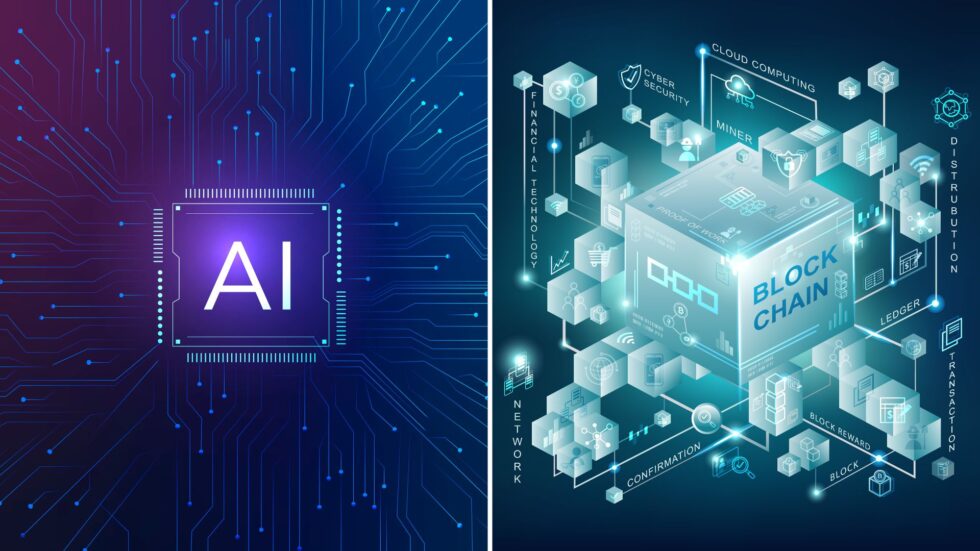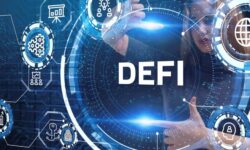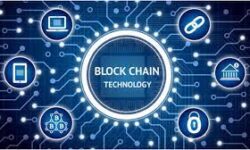
The 21st century has been defined by two groundbreaking technologies: artificial intelligence (AI) and blockchain. AI excels at processing vast amounts of data, uncovering patterns, and making intelligent predictions, while blockchain brings transparency, decentralization, and security to digital systems.
Now, these two forces are converging. AI meets blockchain isn’t just a catchy phrase — it’s a powerful fusion that could redefine industries, making systems smarter, faster, and more secure. But how exactly do these technologies complement each other, and where is this synergy being applied today?
Why AI and Blockchain Are Natural Partners
At first glance, AI and blockchain seem like opposites. AI thrives on data centralization for training models, while blockchain decentralizes data across distributed networks. Yet, their strengths address each other’s weaknesses:
- AI needs trustworthy data. Blockchain ensures data integrity by making it tamper-proof and auditable.
- Blockchain needs intelligence. AI can optimize performance, automate processes, and enhance decision-making within blockchain systems.
- Together, they balance trust and intelligence. The result is a hybrid ecosystem where AI models rely on secure, transparent data, while blockchain networks gain adaptive, automated capabilities.
Smarter Systems: AI-Enhanced Blockchain Applications
AI is already being integrated into blockchain-based platforms to improve efficiency and unlock new capabilities:
- Fraud Detection and Risk Management
AI algorithms can analyze blockchain transaction patterns to detect suspicious activity in real time. This strengthens anti-money laundering (AML) and fraud prevention systems across crypto exchanges and DeFi platforms. - Smart Contract Optimization
While smart contracts execute predefined rules, AI can monitor and suggest improvements in performance, cost-efficiency, or risk management. In the future, contracts may even adapt dynamically to changing conditions. - Predictive Analytics in DeFi
DeFi platforms use AI to forecast liquidity needs, optimize yield farming strategies, and provide risk-adjusted investment insights — creating a more stable ecosystem. - Personalized Web3 Experiences
Just as AI powers recommendation engines in Web2 (like Netflix or Amazon), AI integrated with blockchain wallets and dApps could personalize financial products, NFT marketplaces, or metaverse experiences.
Faster Systems: AI Driving Blockchain Performance
One of blockchain’s biggest hurdles is scalability. AI can help tackle this challenge:
- Network Optimization: AI can predict and manage congestion by dynamically adjusting fees or routing transactions through the most efficient nodes.
- Consensus Mechanisms: AI-powered consensus models could identify malicious nodes faster, reducing the need for energy-intensive validation processes.
- Resource Allocation: In decentralized networks, AI can optimize how computing and storage resources are distributed, accelerating overall performance.
These improvements move blockchain closer to handling millions of transactions per second — a prerequisite for mainstream adoption.
More Secure Systems: AI + Blockchain for Cyber Defense
Cybersecurity is where the AI-blockchain partnership shines brightest.
- Immutable Data + AI Monitoring: Blockchain ensures logs and records can’t be altered, while AI continuously scans for anomalies, creating highly resilient systems.
- Decentralized AI Models: Instead of relying on centralized servers that are vulnerable to hacks, AI models can be distributed and secured via blockchain. This protects sensitive training data.
- Privacy-Preserving Computation: Combining zero-knowledge proofs with AI allows analysis of encrypted data without exposing it, balancing privacy with intelligence.
In essence, blockchain adds trust and security, while AI adds protection and adaptability.
Real-World Applications Emerging Today
This isn’t just theory — companies and projects are already experimenting with AI-blockchain convergence:
- SingularityNET: A decentralized marketplace for AI services powered by blockchain, where developers can share and monetize AI models.
- Fetch.ai: Uses AI and blockchain to create autonomous “agents” that can negotiate, trade, and optimize services like supply chain logistics.
- Ocean Protocol: Enables secure sharing of data for AI training, with blockchain ensuring ownership and fair compensation.
- Healthcare: AI-driven diagnostics combined with blockchain’s secure medical records are improving patient outcomes while protecting privacy.
The Roadblocks Ahead
Despite the potential, challenges remain:
- Data Privacy vs. Data Hunger: AI needs massive datasets, but blockchain emphasizes data ownership and privacy. Balancing these priorities is tricky.
- Energy Consumption: Both AI training and blockchain consensus (especially Proof-of-Work) are resource-intensive. Solutions must focus on efficiency.
- Regulation and Ethics: Who owns AI models trained on blockchain data? How should bias and accountability be managed in decentralized systems?
- Complexity of Integration: Merging two advanced technologies requires sophisticated infrastructure and skilled developers.
Looking Ahead: A Converging Future
The fusion of AI and blockchain isn’t about replacing one technology with the other — it’s about creating systems greater than the sum of their parts. Together, they could:
- Enable trustworthy AI, trained on tamper-proof blockchain data.
- Power self-optimizing financial systems, where AI adjusts DeFi protocols in real time.
- Build autonomous organizations (DAOs) that make data-driven decisions with AI while ensuring transparency through blockchain.
- Transform industries from healthcare to logistics, making them smarter, faster, and more secure.
Final Thoughts: The Age of Intelligent Trust
As blockchain matures and AI accelerates, their convergence may define the next era of digital innovation. One ensures trust and transparency, the other delivers intelligence and adaptability. Together, they could reshape not just crypto and finance, but the entire global digital economy.
The rise of AI-powered blockchains signals a powerful shift: from systems that merely record transactions to ecosystems that think, adapt, and protect.









